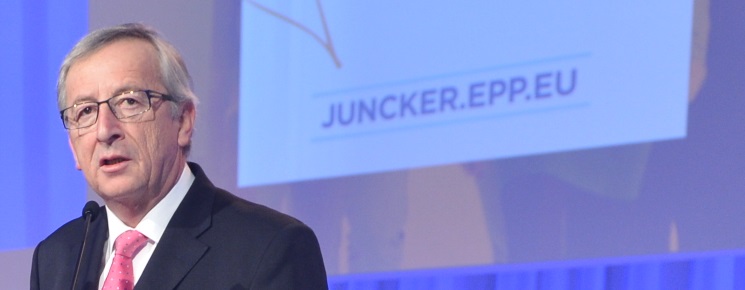A series of elections are coming that could shake the EU
A series of elections in Europe could shake the political establishment's foundation in the coming 12 months, as four of Europe’s five largest economies already show considerable gains for nationalists.
Published: October 21, 2016, 12:40 pm
The Freedom Party in the Netherlands, France’s National Front, and Italy’s Five Star Movement, are all looking steady.
“The Netherlands should again become a country of and for the Dutch people,” Evert Davelaar, a Freedom Party backer told Bloomberg. He points out the obvious: Immigrants don’t share Western and Christian values.
Recent polls show Geert Wilders’s anti-immigrant, Eurosceptic Freedom Party gaining on the Liberals going into the general elections to be held next year in March. They hope to spoil Wilders’ chances of finding a coalition partner however.
In Italy the showdown might be sooner. Prime Minister Renzi wants to curb the power of Parliament’s upper house and has said he’ll resign if there’s a “no” vote. That could plunge the country into crisis, and lead to national elections in 2017. The “no” side is just slightly ahead, as Renzi’s base remains divided on the referendum.
France’s April-May presidential elections are coming up too where voters decide on a president after primaries, followed by a first round of voting in April and a runoff in May. Polls for the first round of presidential voting show Marine Le Pen would win as much as 30 percent of the vote in April, enough to advance to a second round.
But surveys show she’d lose a runoff to a mainstream candidate unless François Hollande decides to run again. Bordeaux Mayor Alain Juppé, a pro-European, business-friendly former prime minister, is the front-runner in a November primary, while Hollande, the deeply unpopular Socialist president, hasn’t said whether he’ll seek reelection. Emmanuel Macron, a leftist former economy minister, is the wild card.
In parliamentary elections in June, the party that wins the presidency is likely to gain enough seats to form a government. Despite Le Pen’s popularity, the National Front holds no seats in the 577-member National Assembly and failed to gain control of any regional governments in elections last year.
Chancellor Merkel is publicly grovelling after her poor handling of the refugee crisis and won’t say if she’ll seek reelection after 11 years in office. At her party convention set to take place in December, she will be forced to signal her intentions though.
If she does stand, the nationalist AfD could win seats in Parliament for the first time. Other parties would likely band together to deny AfD any power in government, but the CDU-CSU bloc could abandon their leftist coalition partners on order to appease voters.
In Austria the nationalist Freedom Party has a shot at winning the presidency in balloting set for December 4, after an election in May that the Freedom Party narrowly lost was annulled because of irregularities in vote counting. The nationalists are deeply skeptical of European integration, and those in France and the Netherlands want to follow Britain’s lead and quit the European Union.
“You might end up having a political crisis on top of an economic slowdown and a banking mess,” Bloomberg Intelligence economist Maxime Sbaihi says about Italy. “Suddenly, stars could align for the worst.”
The scenario underscores what may be the biggest risk of the nationalist groundswell to international institutions: increasingly fragmented parliaments that will be unwilling to play ball with the IMF, EU or European Central Bank. The Brexit vote in June helped energize anti-globalists.
France’s National Front, for example, wants to temporarily renationalise banks and increase tariffs while embracing new labour rules. The IMF says such policies could dampen already weak euro zone growth, forecast to drop from 2 percent in 2015 to 1.5 percent in 2017. “Politics introduces a downside skew to growth,” the IMF economists warned.
Mario Draghi, the ECB’s President, have been fending off Berlin’s attempts to capture the central bank, as Germany continues to challenge the ECB’s conduct of independent policies with instruments and credit intermediation channels that the bank maintains are within its mandate.
The European struggle to dominate the globalist ECB has long roots, because of the German quest for control of euro area monetary policies. Berlin has sued the ECB for transgressing its mandate in the German Constitutional Court and to The European Court of Justice, but lost both cases.
EC Chair Jean-Claude Juncker, ostensibly defending the Union, is threatening Germany with dissolving unity in Europe as well as conflict, by blaming Berlin for the treatment of Greece. Juncker says the Grexit referendum “has left deep wounds there,” and that “Italian elections (in February 2013) were excessively anti-German.” He concluded by issuing a stern warning that “anyone who believes that the eternal issue of war and peace in Europe has been permanently laid to rest could be making a monumental error. The demons haven’t been banished; they are merely sleeping …”
But Merkel rather than Germany, is an election issue because she is seen as a humiliating arbiter of the economic policies of other EU states. European voters believe public policy is a matter of their sovereign right.
Central Europeans are stirring up too. Hungary is leading the opposition to Merkel’s unilaterally decreed globalist migrant policies. That opposition is at the core of a number of other grievances levied at the Chancellor and Brussels by the Visegrad Group which include Poland, Hungary, Czech Republic and Slovakia.
Southern European states remain resolutely opposed to further sanctions against Russia which have proved to be more detrimental to European economies than to a self-sufficient Russia.
Austria and the Czech Republic are increasingly aligning themselves with southern Europe.
But in the aftermath of Brexit, the biggest crack has emerged between Merkel and the alcohol-afficionado Juncker, who Merkel actually blames for pushing Britain out so as to provide an opening for the resurgence of nationalist parties.
As the Telegraph reported, citing a Sunday Times interview with a German government minister right after Britain voted against EU membership, Merkel decided to oust Juncker “within the next year”.
While the media reported on the German chancellor’s “frustration” with the European Commission chief about whether to use the Brexit negotiations as a trigger to deepen European integration, the fight is really about globalist institutions encroaching on Germany.
British strategists hope that post-Brexit negotiations without Juncker, would bolster the UK’s role in keeping Europe geopolitically locked into NATO, with defence contributions and links to Washington, because if not, the UK has only very limited leverage. They need Merkel to achieve the outcome they want.
Free trade, freedom of movement and basic standards for industrial and agricultural products is sensible given the geographical proximity of European countries, but if Brussels won’t accept the limitations of integration, nationalism will impose them soon.
All rights reserved. You have permission to quote freely from the articles provided that the source (www.freewestmedia.com) is given. Photos may not be used without our consent.
Consider donating to support our work
Help us to produce more articles like this. FreeWestMedia is depending on donations from our readers to keep going. With your help, we expose the mainstream fake news agenda.
Keep your language polite. Readers from many different countries visit and contribute to Free West Media and we must therefore obey the rules in, for example, Germany. Illegal content will be deleted.
If you have been approved to post comments without preview from FWM, you are responsible for violations of any law. This means that FWM may be forced to cooperate with authorities in a possible crime investigation.
If your comments are subject to preview by FWM, please be patient. We continually review comments but depending on the time of day it can take up to several hours before your comment is reviewed.
We reserve the right to delete comments that are offensive, contain slander or foul language, or are irrelevant to the discussion.

NOAA Predicts Zero Sunspots for Almost the Whole 2030s
CLIMATEThe United States' government scientific organization, the National Oceanic and Atmospheric Administration (NOAA), predicts zero sunspots from 2031 to 2040. This is an extreme situation that has not occurred in as long as humanity has been counting sunspots, and it leads us into uncharted territory in terms of our solar system. However, this prediction aligns with the warnings of the world-renowned solar researcher Valentina Zharkova for many years, who indicated in 2019 various signs of this catastrophic phenomenon, including the extreme hailstorms we have seen in Europe and the world this summer. The forecast and various observations this year give cause for very significant concern. In this unique analysis, Free West Media explains why.

European Nationalist Parties Forge Cooperation Ahead of EU Elections
EUROPEAN ELECTIONSOn Saturday, August 26, representatives of six European nationalist parties gathered in Budapest. The meeting was initiated by the Hungarian party Mi Hazánk and took place in the national parliament. Representatives of the parties signed a joint declaration that not only reaffirms the parties' friendship but also their unity on a range of complex political issues. A surprisingly clear and radical manifesto was established. The hope is that this cooperation will lead to success in the EU elections and eventually result in the formation of a group in the European Parliament. For Swedish nationalism, this meeting marks a success as Sweden, for the first time, has a party represented in a leading nationalist cooperation in Europe. Free West Media was present at this historic event.

Sweden’s NATO membership bid goes up in smoke
StockholmAfter the burning of the Quran in Stockholm, Turkey has no intention of allowing Sweden to join NATO. Sweden's Prime Minister, on the other hand, pointed to the importance of freedom of expression. The NATO Secretary General also spoke up on the matter.
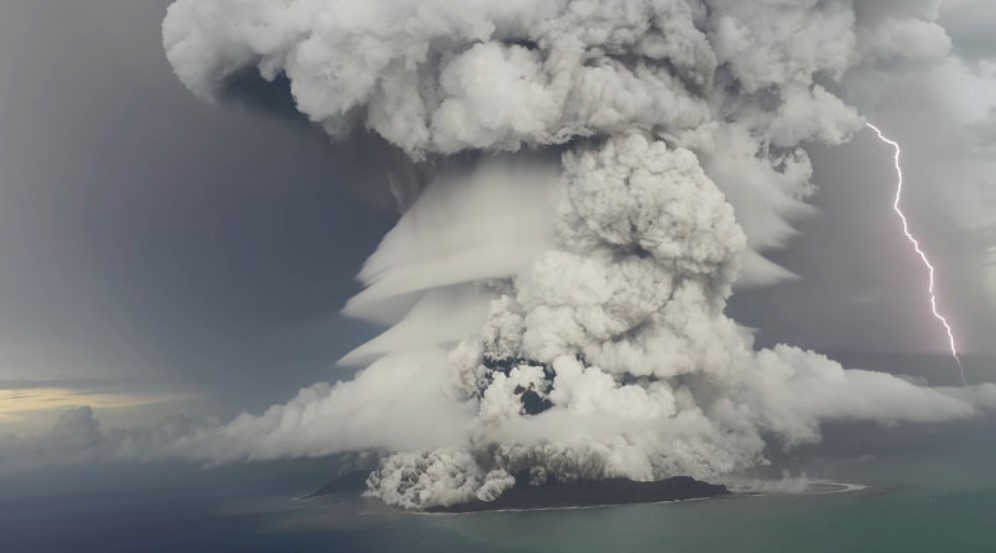
Volcanic eruption in Tonga will contribute to global cooling
When the underwater volcano in the island nation of Tonga in the South Sea had its explosion-like eruption on January 15, 2022, a massive pressure wave, more powerful than the largest atomic bomb, spread through both the Earth's oceans and atmosphere. The catastrophic event created a record-high ash and gas cloud that continues to spread over the earth.
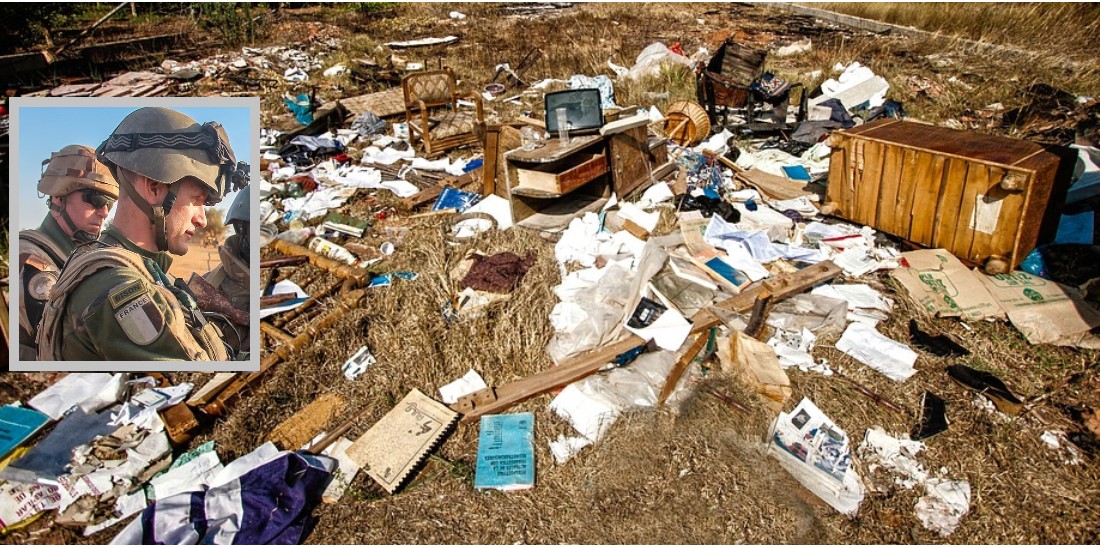
French NATO soldiers in Romania hungry, freezing, overrun by rats
CincuFrench NATO soldiers stationed at the Cincu military base in Romania bitterly complained to an investigative journalist about the terrible living conditions they suffer. They live in filthy prefabricated houses from Mali that are hardly heated, there are not enough toilets, and garbage is piling up in the camp.
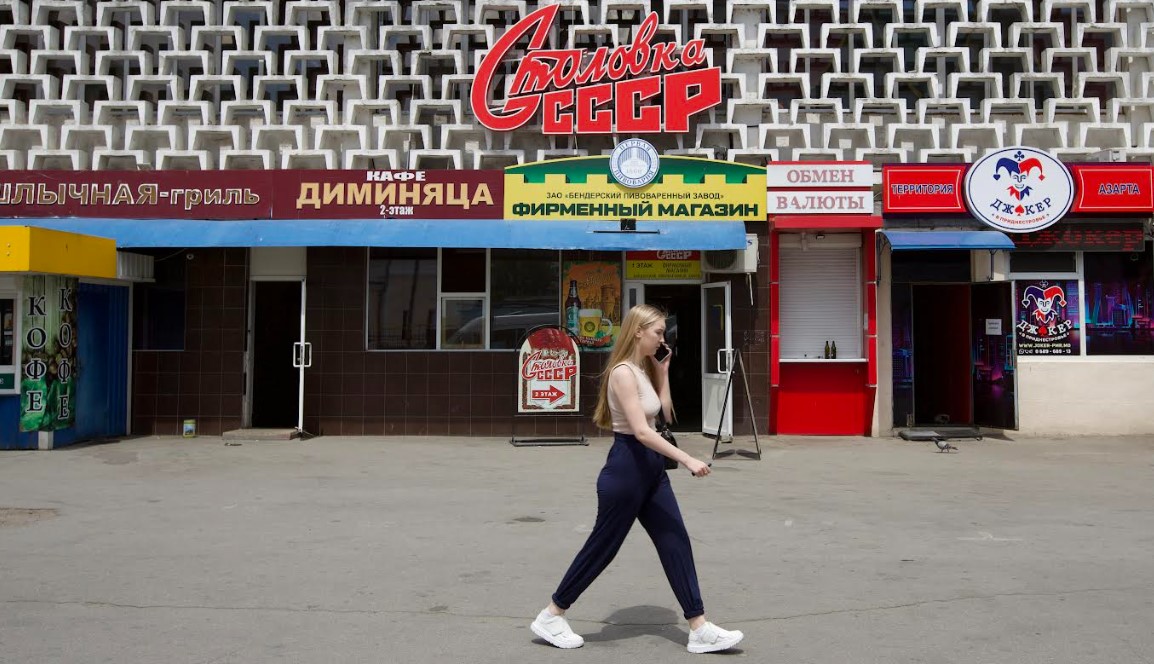
War or peace? The future of Transnistria
The war is getting closer to Transnistria every day, but the region – a self-proclaimed republic with Russian backing – is still calm and life goes on as usual. However, several threats are on the horizon. Is Transnistria the first country to which war will spill over? We visited this almost forgotten part of Eastern Europe where the Soviet heritage is still visible and present.

Exclusive: Swedish politician’s Bilderberg attendance exposed through FOI
StockholmSweden's Minister of Social Affairs Lena Hallengren traveled to the US at the beginning of June to meet globalist politicians and vaccine companies, as well as to attend the Bilderberg Group meeting in Washington DC. The whole thing became an expensive trip for Swedish taxpayers. Hallengren not only chose to fly business class on all flights, but she also stayed in several different luxury hotels.
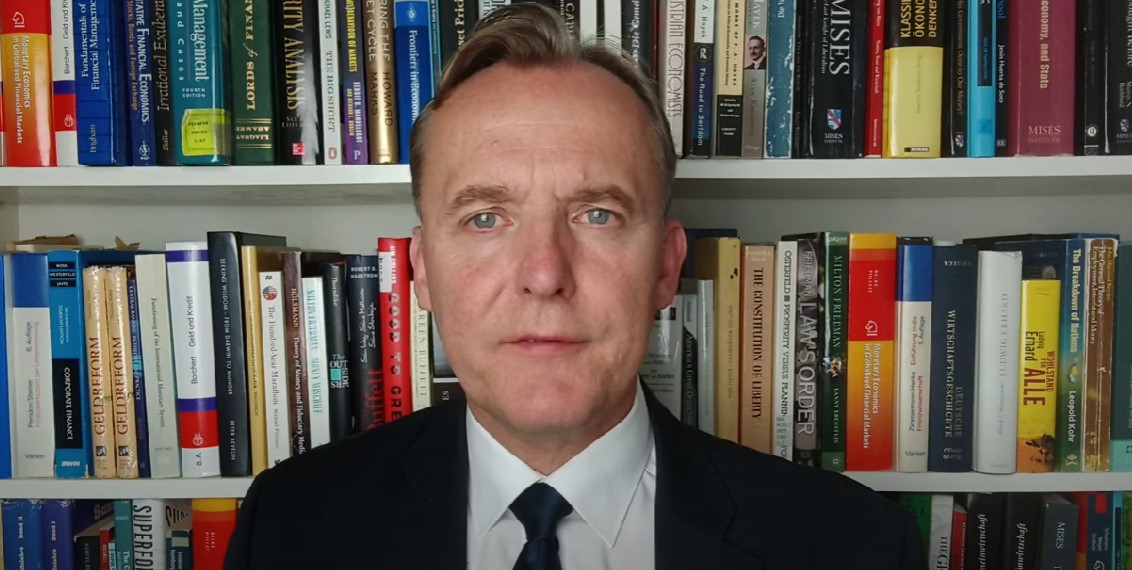
‘Fiat money needed to hide Great Reset costs’
ViennaThe failure to put the financial system on a solid footing after the financial crisis in 2008, the pandemic and sanctions due to the Ukraine war, have ensured that the cards are finally being reshuffled.
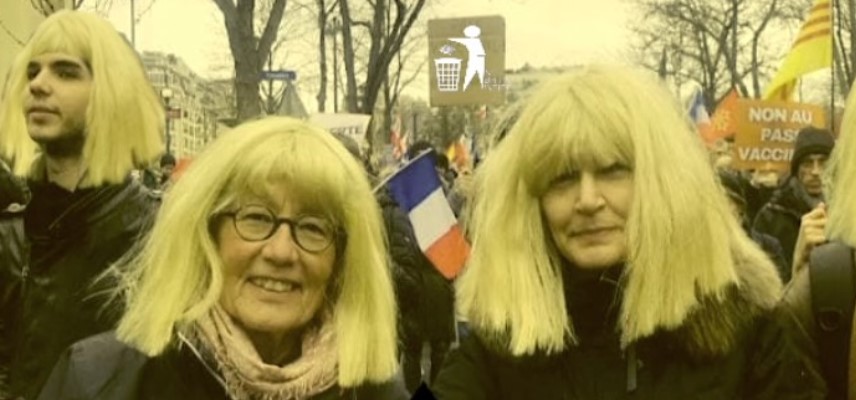
The Trogneux mystery
ParisThe First Lady of France could end the suspense of the disappearance of Jean-Michel Trogneux in the blink of an eye, by appearing in the simplest of clothes: A birth suit. Especially since the French are not overly sensitive about nudity.

At least 69 athletes collapse in one month, many dead
The reports of athletes who suddenly collapse have been increasing noticeably lately. Heart problems such as heart inflammation are often the cause – one of the known life-threatening side effects of Covid vaccines, which even the manufacturers themselves warn against.





